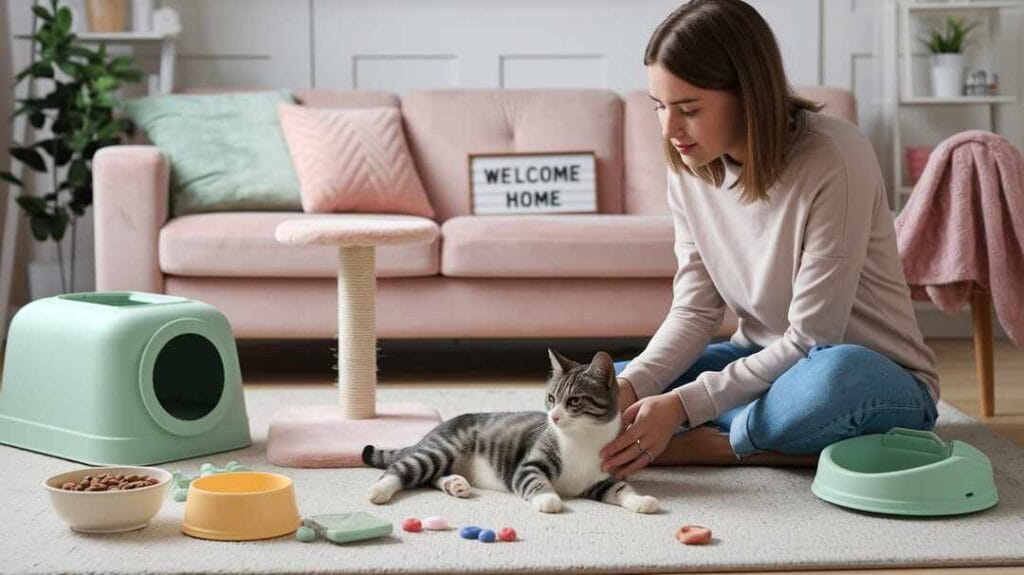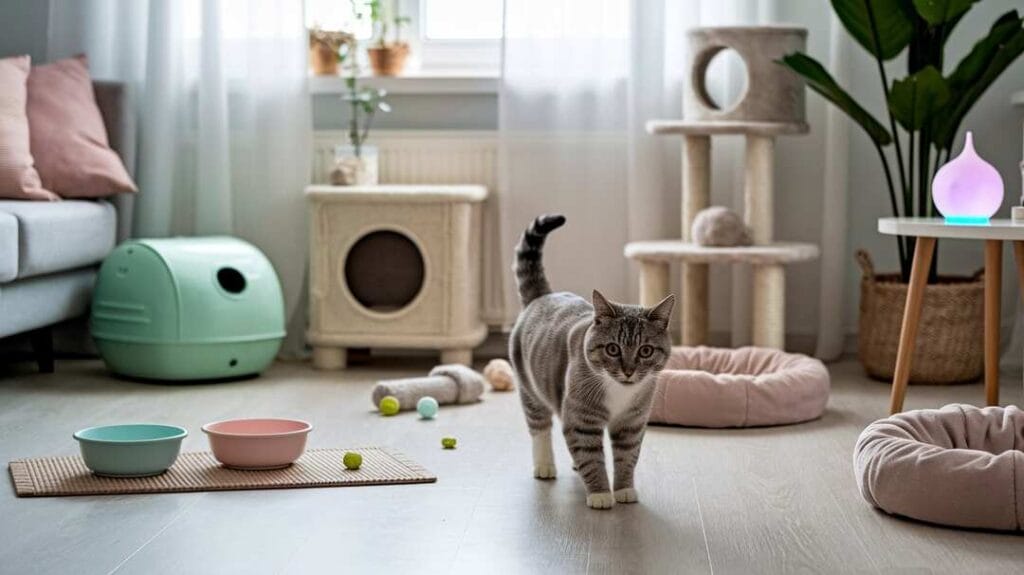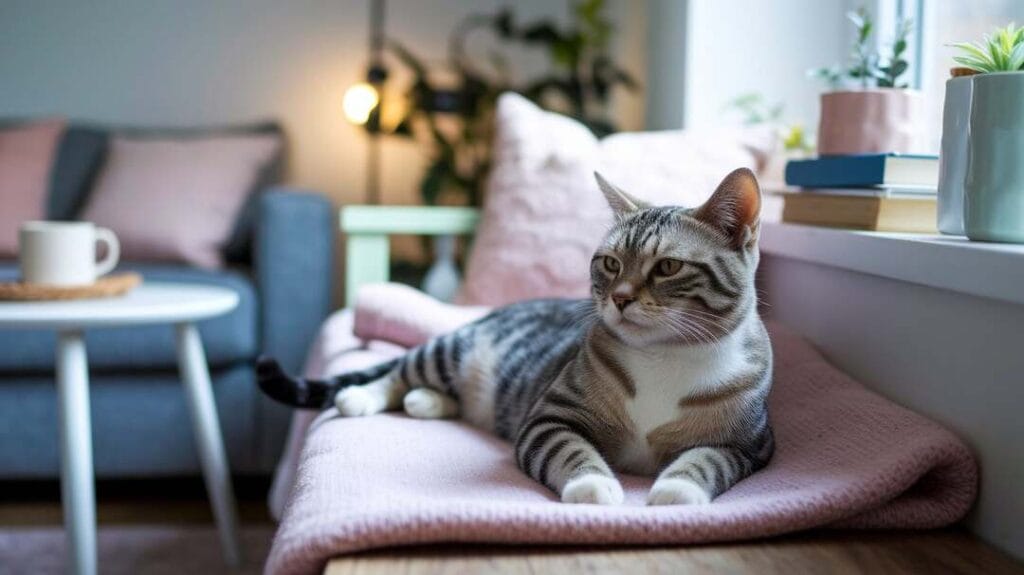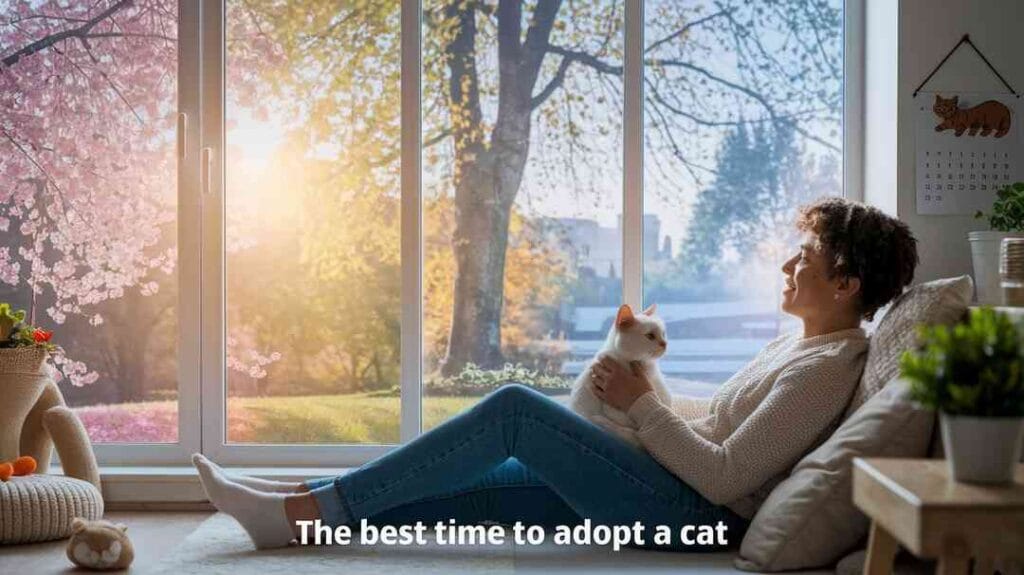
Introduction: The Fluffiest Dilemma You’ll Ever Face
So, you’ve made the life-changing decision to adopt a cat—congratulations, future cat parent! But now comes the question that stumps even the most seasoned animal lovers:
Do you adopt a playful little kitten or an older, more mature cat?
The debate of kitten vs adult cat adoption isn’t just about age—it’s about lifestyle, personality, and the kind of bond you want to build. In this guide, we’ll break down the pros, cons, real-life experiences, costs, and expert advice to help you confidently choose the purr-fect companion.
Let’s dive into the whiskered world of cat adoption with curiosity and compassion. 🐾
Understanding the Differences Between Kittens and Adult Cats
Before we weigh the pros and cons, it’s essential to know what distinguishes a kitten from an adult cat—besides the obvious cuteness overload.
🐱 Kittens
- Age: 0–12 months
- Behavior: Energetic, playful, curious, and needy
- Health: Rapid development, requires vaccines and vet checkups
- Training: Highly moldable but also more prone to mischief
🐈 Adult Cats
- Age: 1+ years
- Behavior: More settled, predictable personality
- Health: Usually already spayed/neutered and vaccinated
- Training: Litter-trained, may have existing habits
Knowing these differences is key to understanding how they’ll fit into your lifestyle—and your living room.
Pros of Adopting a Kitten
🌟 1. They’re Adorable—And That’s a Scientific Fact
It’s not just you—kittens trigger oxytocin in our brains. Their big eyes, tiny paws, and constant curiosity make them irresistibly cute.
🌟 2. Behavioral Shaping
Kittens are little blank slates. You can teach them good habits (like using the scratching post instead of your favorite chair) early on.
🌟 3. Stronger Long-Term Bond
Many cat parents say that raising a cat from kittenhood leads to a deep, lifelong bond. There’s something special about growing up together.
🌟 4. Longer Time Together
With proper care, indoor cats can live 15–20 years. Adopting a kitten gives you the longest possible journey with your feline friend.
Cons of Adopting a Kitten
⚠️ 1. High Energy, High Maintenance
Kittens are full of zoomies and chaos. Expect midnight sprints across the bed, shredded curtains, and surprise attacks on your ankles.
⚠️ 2. Training Required
Litter box learning, socialization, and claw manners? All on you. It’s like raising a toddler—with claws.
⚠️ 3. Costly Start
Initial vet visits, spaying/neutering, vaccines, and microchipping can add up quickly.
⚠️ 4. Potential Destructive Behavior
Chewing on cords, knocking things over, and playing rough are part of the kitten package. Your plants may not survive the kitten phase.
Pros of Adopting an Adult Cat
✅ 1. What You See Is What You Get
An adult cat’s personality is already formed. Love snuggles but not chaos? Look for a lap cat. Want an independent explorer? There’s one for that too.
✅ 2. Already Trained
Most adult cats are litter-trained and understand basic house behavior. That’s a big win for first-time cat parents.
✅ 3. Lower Energy
Adult cats are far less likely to climb your curtains or knock over your houseplants (well…most of the time).
✅ 4. Good for Busy Lives
If you’re working full-time or have a calm household, an adult cat will likely match your pace better than a kitten.
Cons of Adopting an Adult Cat
❌ 1. May Carry Emotional Baggage
Some adult cats, especially rescues, may come with trauma or trust issues. They might take longer to warm up.
❌ 2. Less Time Together
Depending on the cat’s age and health, you might not have as many years ahead compared to a kitten.
❌ 3. Behavior Hard to Retrain
Bad habits like scratching furniture or food aggression can be harder to fix in older cats.
❌ 4. May Struggle with Change
Adult cats may have a harder time adjusting to a new environment, children, or other pets.
Lifestyle Matching: Which Is Better for YOU?
Here’s where things get personal. Let’s look at a few lifestyle snapshots:
| Lifestyle | Best Fit | Why |
| Busy schedule | Adult Cat | Lower energy, less supervision needed |
| Young kids at home | Kitten (if supervised) | Kittens adapt well, but require hands-on care |
| Quiet household | Adult Cat | Mature cats appreciate calm environments |
| Love training & play | Kitten | They thrive with engagement and interaction |
| Live in an apartment | Either, depending on temperament | Many cats do well indoors with stimulation |
Match your energy and routine with your cat’s—and everyone will be happier.
Shelter Realities: The Unspoken Truth
Here’s a hard truth: kittens get adopted faster than adult cats. According to the ASPCA:
- Kittens have an adoption rate of nearly 82%.
- Adult cats? Closer to 60%, and senior cats even less.
What does that mean?
Adult cats often sit in shelters longer—or worse, never leave. If your heart leans toward giving an overlooked cat a second chance, adult adoption might be your calling.
Expert Opinions: What Vets and Behaviorists Say
We asked animal shelter staff and veterinarians about this age-old adoption question. Here’s what they had to say:
🩺 Dr. Lina Harper, DVM
“Kittens require lots of time, energy, and early vet care. But they’re great for homes that are prepared. Adult cats are often easier, especially for first-time pet owners.”
🐾 Maria Estevez, Cat Behaviorist
“Adult cats communicate more clearly. Their body language and preferences are easier to read, which helps new owners build trust.”
💬 Shelter Volunteer Insight
“It breaks our hearts to see older cats passed up. They make amazing companions—calmer, wiser, and often more grateful.”
Real-Life Stories from Cat Parents
🧸 Kittens and Chaos: Life with Luna
Jasmine adopted Luna at 8 weeks old.
“She was tiny, wild, and kept me up at night with her zoomies. But watching her grow into a confident cat has been magical.”
🛋️ A Second Chance for Toby
Mike, a retiree, adopted 8-year-old Toby from a local shelter.
“He just curled up on my lap the first night like we’d always known each other. It was instant peace.”
Both stories show the power of adoption—no matter the age.
Cost Factor: What You’ll Spend
Let’s break down the budget for each:
💸 Kitten Adoption Costs
- Vaccinations: $100–$200
- Spaying/Neutering: $150–$300
- Microchipping: $25–$50
- Toys, food, litter setup: $100–$200
- Total Initial Costs: $375–$750
💸 Adult Cat Adoption Costs
- Many shelters include spaying/neutering, vaccines, and microchipping in the adoption fee
- Setup costs: $100–$200
- Total Initial Costs: $100–$300
In the long run, the costs even out—but kittens cost more upfront.
Final Verdict: Kitten or Adult Cat?
Here’s the real answer: There’s no wrong choice—only the right match for your life.
If you have the time, patience, and energy, kittens are a joy to raise. If you want a calmer companion with a known personality, adult cats are absolute gems.
What matters most is not when you adopt—it’s that you adopt, responsibly and lovingly.
FAQs: Quick Answers to Common Questions
Q1: Are adult cats less affectionate than kittens?
Not at all. In fact, many adult cats are cuddle bugs—they just take longer to open up.
Q2: Is it easier to take care of an adult cat?
Generally, yes. They’re already trained and don’t need round-the-clock attention.
Q3: Are kittens more expensive than adult cats?
Upfront, yes. Vaccines and spaying/neutering increase the cost.
Q4: Can adult cats bond with new owners?
Absolutely. Some form instant bonds, others take time—but love knows no age.
Also Read - Best Way to Introduce Kitten to Older Cat: A Stress-Free, Step-by-Step Guide for Cat Parents
Conclusion: Choose With Heart and Mind
Whether you fall for the wide-eyed charm of a kitten or the soulful stare of an older cat, adoption is an act of love.
Visit your local shelter, ask questions, meet a few cats—and listen to your gut. The right cat is waiting for you, tail curled and ready to come home.
🐾 P.S. Already adopted a cat? Share your story in the comments or explore more guides on PetWynn to help other cat lovers make the best choice!




